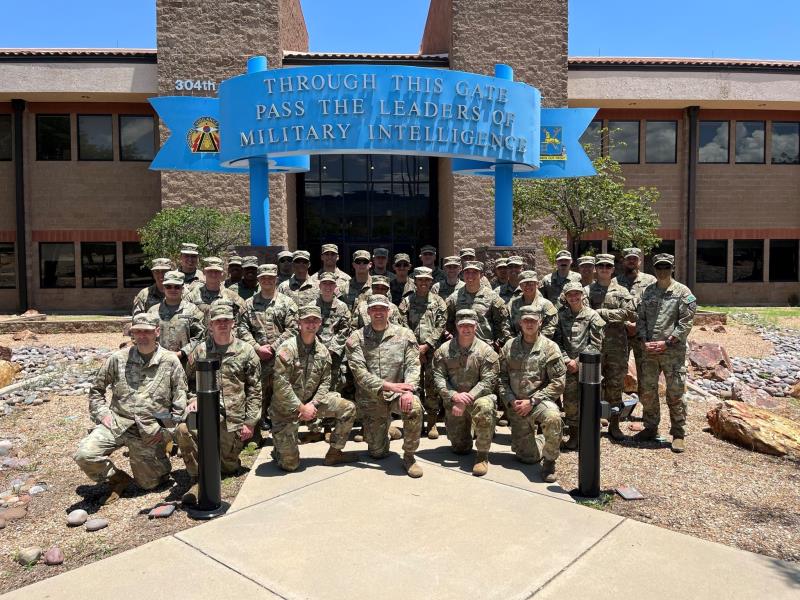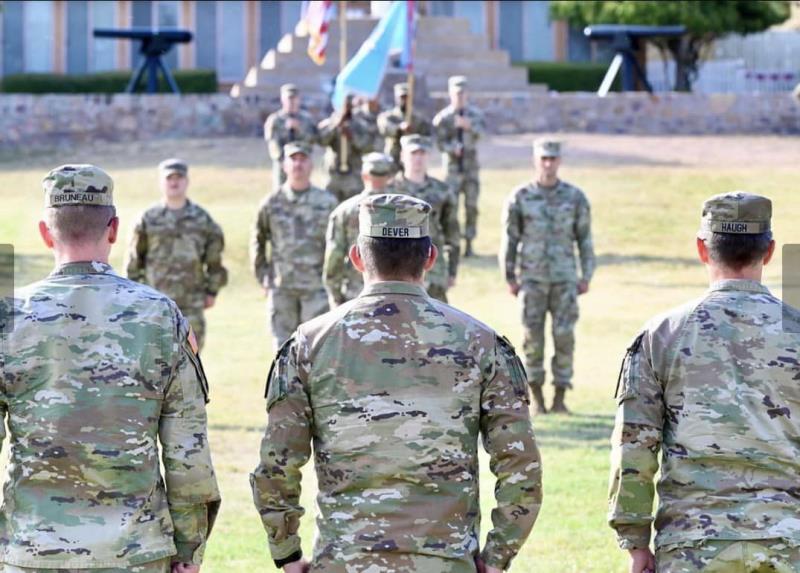On 15 April 1944, the 304th Military Intelligence (MI) Battalion was constituted as the 590th Signal Depot Company into the U.S. Army. Since its inception seventy-eight years ago, the 304th MI Battalion has trained and supported MI professionals and provided necessary support to the Army’s missions.
On 15 April 1944, the 590th Signal Depot Company was constituted into the U.S. Army and activated less than two months later in North Africa. Assigned to the North African theater in Oran, Algeria, the company trained for its duties and responsibilities under the 2624th Signal Service Regiment. Its primary functions included coordinating signal supply operations, maintenance and repair of signal equipment to include radars, and storage of signal equipment.
On 27 September 1944, the 590th Signal Depot Company left Oran for Marseille, France. The unit operated in the Army’s communication zone supporting General Eisenhower’s forces in the Rhineland campaign conducted from 08 February to 27 March 1945. In October, the company was reassigned to the Delta Base Section, headquarters for the southern line of communication, where it provided logistical and communication support for the main battle efforts. After the conclusion of World War II, the company returned to the United States and was subsequently inactivated on 04 December 1945.
On 17 March 1948, the 590th Signal Depot Company reactivated under the new designation of 848th Signal Radio Relay (RR) Company assigned to the U.S. Army Reserves. At the outbreak of the Korean War on 25 June 1950, the 848th Signal RR Company returned to active military service as the Headquarters and Headquarters Detachment, 304th Communication Reconnaissance (CRC) Battalion in support of the IX Corps in Korea. On 18 September 1952, the 304th CRC Battalion operated near Singpo-ri, Korea, providing communications intelligence and security support and maintaining close liaison with the IX Corps G-2. The 304th CRC’s operations were conducted in three stages: interception of communication traffic, analysis of raw traffic and extraction of information to be incorporated into Daily Intelligence Summaries, and lastly, dissemination of intercepted tactical information channeled through the battalion to the IX Corps G-2. At the end of the war, the 304th CRC was commended for its support in the “Iron Triangle.” The battalion earned six campaign streamers for its involvement in the Korean conflict marking it as the most significant achievement in the 304th MI Battalion’s history.
After five years overseas, the 304th returned to a reserve status on 25 June 1955 and was later inactivated. On 01 April 1975, the 304th reactivated as the 304th Army Security Agency Battalion, assigned to the Fifth U.S. Army in Houston, Texas, until the 1st Battalion, 111th MI Brigade (Training), at Fort Huachuca, Arizona absorbed it on 15 September 1988.
On 01 February 1990, the 1st Battalion redesignated as the 304th MI Battalion. During Operation DESERT STORM early the following year, the battalion deployed the only Unmanned Aerial Vehicle (UAV) Platoon in the U.S. Army to support combat missions. The platoon, nicknamed the “Ghost Riders,” established its operations at the Al Qaisumah/Hafr al Batin Airport in the Eastern Province of Saudi Arabia. On 02 February 1991, the Ghost Riders flew the first UAV combat system, the Pioneer, in U.S. Army history, supporting the VII Corps mission to provide night and day battlefield surveillance and targeting. Throughout the war, the platoon completed fifty missions and demonstrated the UAV’s potential as a valuable combat asset.
Today, the 304th MI Battalion continues to train and educate the next generation of MI junior commissioned officers and warrant officers.

